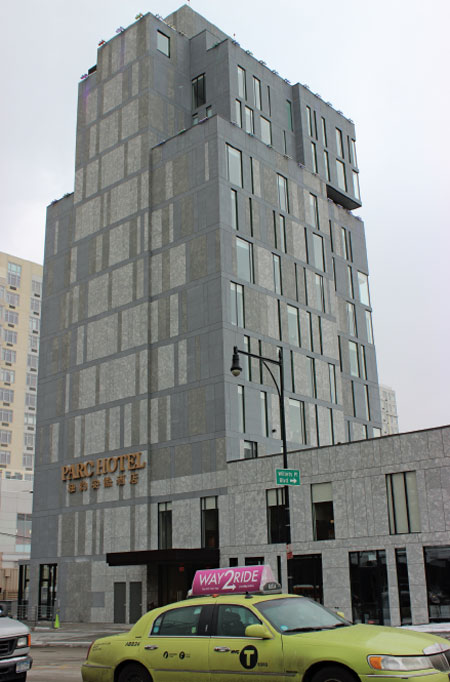Parc Hotel: Opens in Flushing, NY targeting picky Chinese travelers
Updated: 2014-02-28 11:41
By Liu Lian in New York (China Daily USA)
|
|||||||||
|
The 96-room Parc Hotel, conveniently located in the heart of Flushing, home to the second-largest Chinatown in New York City, caters to both business and leisure Chinese travelers. Photo by Liu Lian / China Daily |
The Parc Hotel celebrated its opening on Tuesday in the heart of Flushing, Queens, home to the second-largest Chinatown in New York City.
The 96-room hotel occupies a new 12-story building developed and owned by Chinese investors led by Anqiao Group, a real-estate development and investment group from East China's Shandong province.
Visitors to the Parc Hotel will find Chinese breakfast staples such as porridge, tea eggs, dumplings and steamed buns on the hotel's complimentary breakfast menu. Hot water and hot tea are also provided around the clock to hotel guests.
A naturalized American citizen, An Quanzhong, chairman and president of Anqiao Group, traveled often across the Pacific. "We are well aware of what fellow Chinese travelers need. Some of the older generation does not speak English, for example. I made sure that we had plenty of Chinese-speaking employees on staff so that guests feel more at ease and are able to get help going around," he said.
With quotes from the Analects of Confucius in English and Chinese on the wall in each room and Chinese watercolor painting and framed calligraphy in the lobby, the hotel's design was inspired by modern decoration with touches of retro and Chinese flair.
"I want to build a China center that caters to Chinese tourists," said An, "and create a home away from home for our fellow Chinese visitors. It's also going to be a showcase of Chinese culture to those non-Chinese guests who lodge in our hotel."
An was among a cluster of Chinese investors in recent years who made a dent in the hospitality sector in the US. Years after American global hospitality firms such as Hilton Worldwide tapped into Chinese mainland, Chinese buyers seemed to be late bloomers entering the US market with a strong appetite.
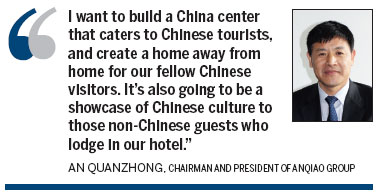
As early as 2009, Keck Seng Investments, a Hong Kong-based firm, paid $90 million for the W Hotel in San Francisco. In 2010, Shenzhen New World Group, a Chinese real estate firm, purchased the Los Angeles Marriott Downtown for an estimated $60 million and the Sheraton Hotel in Universal City, California, one year later for $90 million. In 2012, a property-holding subsidiary of China's Hainan Airlines (NHA) Group acquired the Cassa Hotel in Midtown Manhattan for $130 million.
The highest profile hotel acquisition by Chinese buyers came when Hong Kong billionaire Cheng Yu-tung paid $570 million for five hotel properties in 2011, including the Carlyle Hotel in Manhattan, the Crescent in Dallas and Little Dix Bay in the British Virgin Islands, two former Rosewood properties.
"We invested roughly $25 million for the Parc Hotel. Admittedly, it's a small amount compared with those big hotel deals, but the project is a baby step for our future expansion in the US," said An whose Anqiao Group was valued at approximately $816 million by asset.
Chinese investors saw the increasing need for hotels in markets where Chinese tourists and businessmen are mostly interested. "They are confident that they have the advantage of the sale and distribution channel in China and to get to the customers even before they arrive," said a commercial bank head who preferred to remain anonymous.
Despite the slump of Chinese currency in recent weeks against the US dollar that brought broad concerns to global investors, the RMB has risen more than 30 percent since China revalued its currency in 2005. "The rising currency has given rise to the purchasing power of Chinese investors. Meanwhile, direct investment overseas is also a way for Chinese corporations to tackle domestic inflations," said an analyst on Chinese economy.
"China's economy has entered a new phase that the GDP growth rate is no longer the denominator for the economy's development," said An. "Now real estate firms in China pay more attention to environmental factors and quality over quantity when developing a project."
For Chinese private investors like Anqiao, there were also increasing needs to diversify assets and investment portfolio in major markets besides China. "The price of real estate in China has reached an all-time high, especially in the big cities like Beijing and Shanghai. By comparison, the property price in the US seemed on the lower end after the 2008 financial crisis. We investigated the market and focused on situations where there's a demand in scarcity," said An.
New York City real estate had sustained the financial crisis and it rebounded the fastest in the US. "That's why we purchased the land in 2010 and started the construction, knowing full well that we are in for a long term strategy," said An.
The US hospitality sector also proved to be lucrative and promising, according to the latest report on global hotel performance compiled by Smith Travel Research (STR), a Tennessee-based industry research company.
Compared to January 2013, the US market reported a 2.3 percent increase in occupancy to 52.2 percent, a 2.9 percent increase in average daily rate to $109.24 and a 5.3 percent increase in revenue per available room to $57.02, according to STR.
The US hotel sales in 2013 rose to $28 billion, "a whopping 42 percent increase from 2012 and the strongest hospitality investment sales volume since 2007's $42.9 billion," according to CoStar Group, a commercial real-estate information company headquartered in Washington.
Manhattan's hotel occupation rate has remained around 90 percent since December 2012.
"We are very confident in the (hospitality) sector's performance," said An. "At the same time, many US cities have become favorite destinations for Chinese travelers, which poses great potential for our investment."
China Outbound Tourism Research Institute (COTRI) forecast in April last year that China's outbound travel would increase by approximately 12 percent between 2012 and 2013, from 83 million to 94.3 million travelers. As of June 2013, China (excluding Hong Kong) was in seventh place among the top 20 countries sending tourists to the US, according to the Office of Travel and Tourism Industries (OTTI).
Ernst & Young also pointed out the importance of Chinese travelers in driving the global hospitality sector over the next several years. It concluded in Global Hospitality Insights 2014 that millennials and Chinese travelers are the two key groups for the sector.
The growing number of Chinese travelers to the US shows the need for more lodging, said An, and Anqiao Group is in negotiations to buy another property for a hotel in Flushing.
Overseeing the view of Manhattan from the hotel's rooftop lounge, An said, "We are going to build more and more."
lianliu@chinadailyusa.com
(China Daily USA 02/28/2014 page9)
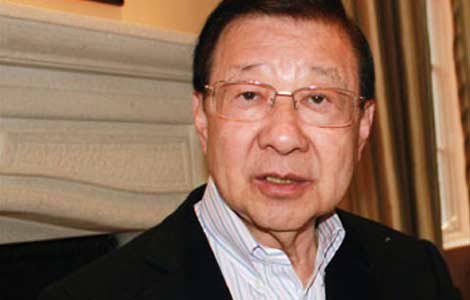
 Successful businessman gives back to the community
Successful businessman gives back to the community
 Tea with heart
Tea with heart
 Wanting Qu: Chinese-Canadian singer-songwriter launches tour
Wanting Qu: Chinese-Canadian singer-songwriter launches tour
 Ibsen gets a Chinese spin in New York
Ibsen gets a Chinese spin in New York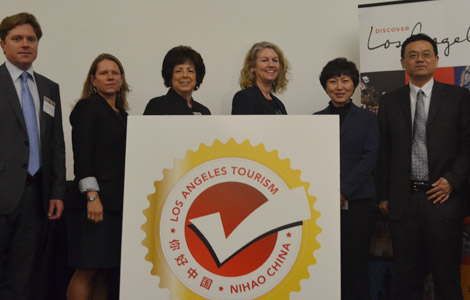
 LA rolls out the red carpet
LA rolls out the red carpet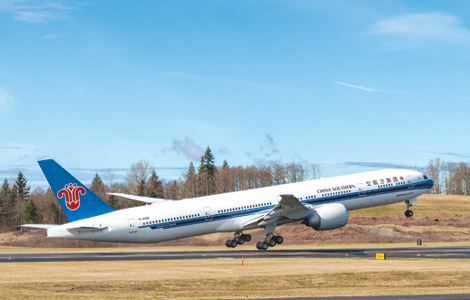
 Airline receives its first Boeing 777-300
Airline receives its first Boeing 777-300
 Freediver takes cheeky selfie with sperm whale
Freediver takes cheeky selfie with sperm whale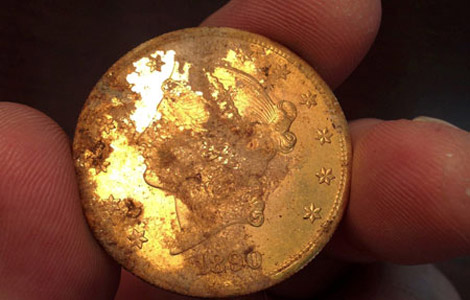
 Buried gold coins unearthed in California
Buried gold coins unearthed in California
Most Viewed
Editor's Picks

|

|

|

|

|

|
Today's Top News
Houston-China bonds deepen with new group
Apple Inc sues China on IP
Climate law summit started in DC
China issues report on US human rights
Scholars from and on China
Baidu gets 'buy' rating from street
Program to help US minority youth
China ignores time bomb of increasing waistlines
US Weekly

|

|
